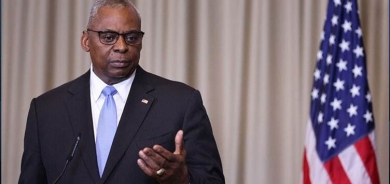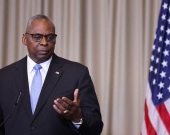Finance ministry confirms Iraq's ability to pay Kuwait dues

The government also called for accelerating the search for a suitable investment formula for the remaining $200m (233bn IQD) dues.
Iraq and Kuwait agreed to settle the issue of compensation of Kuwait Airways by paying $500m (583bn IQD). The agreement was based on two parts: the first is that Iraq pays part of the amount as cash compensation while the second stated on allocating a part of the amount to establish common airlines with Kuwait.
Finance Minister Rafie al-Issawi explained that Kuwait will drop its lawsuit against Iraqi Airways in return for Iraq paying its dues. The agreement will be presented to the Council of Representatives.
"I don't think any of the blocs would object to it," Issawi said.
On April 25, 2010 British authorities detained an Iraqi Airways plane heading from Baghdad to London. The flight was the carrier's first journey to London in more than 20 years. Some 30 Iraqi and foreign passengers were on board.
The plane was impounded due to a court order obtained by a lawyer for state-owned Kuwait Airways. At the time, the lawyer said the order from the High Court in London included freezing Iraqi Airway's assets worldwide subject to frequent judicial review.
The order called for director general of Iraqi Airways Kifah Jabar Hassan to provide a statement on the carrier's assets, remain in the jurisdiction of the court and surrender his passport.
Iraq and Kuwait were engaged in a dispute over billions of dollars in reparations from Baghdad, including some $1.2bn (1.4tr IQD) related to aircraft and parts seized during Saddam Hussein's 1990-91 invasion.
United Nations’ Secretary General Ban Ki Moon urged Iraq in November 2009 to fulfill its obligations to Kuwait, in particular Security Council resolution no.833 on the demarcation of the border between the countries to get Iraq out of the penalty provisions of the UN's Chapter VII.
Iraq has criticized Kuwait for its support of the Chapter VII sanctions, which were imposed on Iraq after the Second Gulf War in 1991. Without Kuwait’s approval, it is unlikely that the UN Security Council will lift the sanctions. A decision on Chapter VII is expected to be made by the UN Security Council in June.
Kuwait previously refused to remove Iraq from Chapter VII before resolving the pending issues.
There are several issues lingering between Kuwait and Iraq that frequently spark tensions between the two neighbors: shared oil fields, land and water border demarcations, and the controversial Kuwaiti Mubarak Port which Iraqis believe will take business away from their ports and affect fishermen working in the Gulf.
Kuwait demands reparations for the Iraqi invasion, disclosure of the fate of Kuwaiti MIAs and the return of the remains of Kuwaiti POWs.
Iraq and Kuwait formed joint committees to resolve the problems existing between them.
AKnews reported earlier that the Iraqi government wishes to settle its issues with Kuwait through the implementation of investment projects for Kuwaiti companies in Iraq.
The Kuwaiti Embassy in Iraq reopened on February 12 and is hoped to promote commercial and investment relations between the two countries.
AKnews














